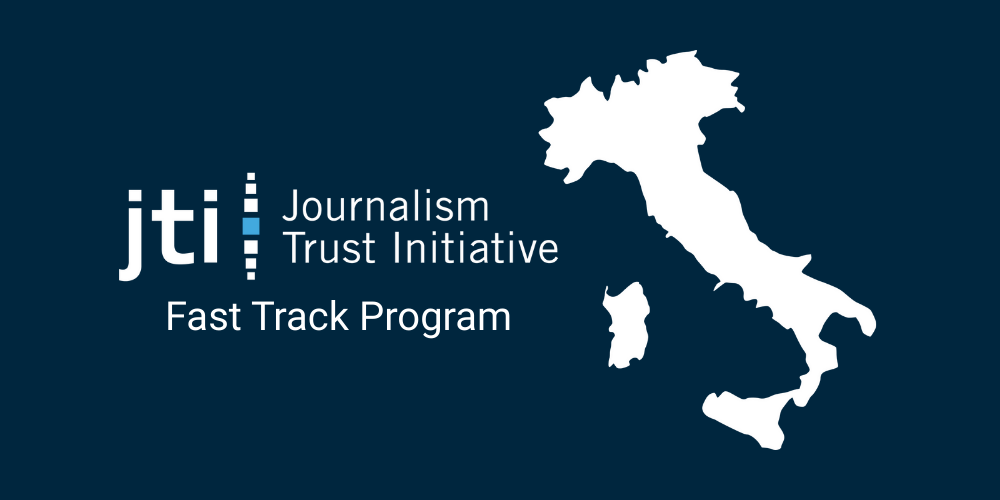Over the past months, ten media outlets in Italy have started the evaluation process to make sure their newsroom practices are aligned with the criteria of Journalism Trust Initiative (JTI), the international journalism standard led by Reporters Without Borders (RSF) that promotes a more professional, transparent and trustworthy media landscape. RSF spoke to them about their experience with JTI and why the standard is essential for them.
In a partnership with RSF, Luiss Data Lab has been the first organisation recommending JTI to Italian newsrooms. They provided them with dedicated support and guidance on how to implement JTI in their daily routine, and helped strengthen JTI’s footprint in the Italian news landscape.
Designed like ISO standards, which serve as backbone to industries where quality, safety and efficiency are paramount, JTI is a quality standard for news publishers that all partners should take up – advertisers, donors, funders, regulators, etc. For instance, media outlets that operate under the requirements of JTI ‘should have privileged access to European grants, calls for proposals and funding related to journalism, said Francesco Stati, director of long-form journalism magazine PrisMag. [They also] should be rewarded in terms of search engine positioning and social media feeds.’
‘Credibility is built on respect for good practices, said Enrico Bellavia, deputy director of 70-year-old newspaper L’Espresso. The self-assessment allows us to reflect on what we have done and what we can still do to make our dialogue with readers even more open and frank, [the transparency] of our work, and what are the most effective ways to strengthen a pact of loyalty between readers and journalists.’
Independent journalism in Italy faces major economic and legal challenges, including restrictive funding criteria, exclusionary professional accreditation, declining public interest in paid news, legal risks for reporters, and a complex, costly administrative system that deters new publishing ventures. Emerenziana Sinagra, journalist at young, student-led publication as part of the Luiss University Zeta Luiss, adds that ‘hyper-competition in the news—with established publications and traditional funding, often linked to commercial or political logic—often pushes towards sensationalism,’ which they ‘counter with careful journalism based on verification, in-depth analysis and rigour.’ to strive to compete.



